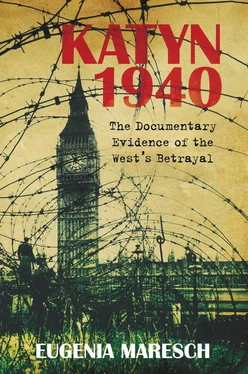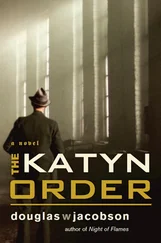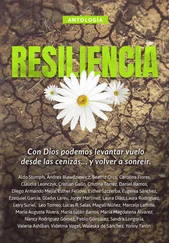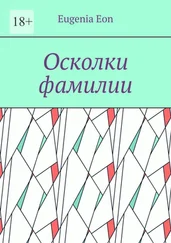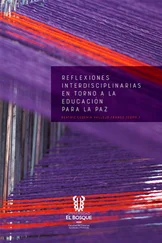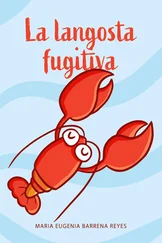PISM KOL 12/4/37 Marian Wodziński (1911–1986) studied medicine at the Jagiellonian University in Kraków, specialised in pathology. Worked for the Court of Appeal and the Institute of Forensic Medicine in Kraków. Part of a team of Poles from the Red Cross, at the invitation of Dr Adam Schebesta of the PCK in Kraków, took part in Katyn exhumations (29 IV 1943 to 3 III 1943). In October 1943 under threat of death left Kraków for a while for Kielce district under assumed name of Cioch. In April 1944 returned to Kraków and with the Soviet front approaching, left again, this time hiding in Poznań district until September 1945, when he decided to escape from Poland for good. Settled in Liverpool, married Dr Wanda Wójcik in 1948 and continued his medical profession in Liverpool. Avoiding publicity and contacts with émigré Poles, died in 1986, his ashes were returned to Tarnów, his birthplace in Poland in August that year.
TNA FO 371/56475 N 4406/108/55G ‘Facts and Documents’, 454-page book, Roneo-machine duplicated in foolscap for ‘private circulation only’ February 1946, PISM KOL 12/12A the original typescript in Polish, 489 pages. Includes reports and depositions by Polish PoWs, documents and correspondence, gathered from Poles inside and out of Russia compiled and edited by a special team of experts, military and civilian, called upon in December 1944 by the Council of Ministers of the Polish Government in London, among them: Colonel Jerzy Łunkiewicz, Lt Marian Heitzmann, Captain Alfred Hergesell, Roman Pucinski (translator), Wiktor Sukiennicki and many others.
Józef Mackiewicz (1902–1985), eminent writer and popular journalist, known for his anti-communist views. From 1922 to 1939, together with his editor brother Stanisław published a popular Wilno newspaper Słowo (The Word). In 1939 Stanisław managed to escape to the West, while Józef stayed under the Soviet–Lithuanian occupation in Wilno, He began to publish for a short while the Gazeta Codzienna (The Daily Newspaper) as both publisher and editor-in-chief but had to shut down. With German occupation of Wilno in June 1941, he was offered editorship of a new newspaper in Polish but categorically refused. In May 1943, he accepted an invitation from the German Press Bureau Gebietskommisaria Wilna-Stadt, to visit the graves at Katyn. He considered the task of national importance and was approved by the AK . On his return, he gave an interview to the infamous German-controlled Goniec Codzienny (The Daily Herald). After the war, while in exile he was castigated for doing so by the émigré Poles.
Ferdynand Goetel (1890–1960), born in Poland and educated Kraków, writer and editor, as a student belonged to the Socialist Youth organisation. Keen mountaineer, wrote many articles on the subject of sport and travel. Studied architecture in Vienna, moved to Warsaw in 1912, continued his literary career, was a keen follower of Piłsudski’s ideology but did not join the Legion. Caught while crossing the border, exiled by the Russians to Uzbekistan 1915–20. Returned to independent Poland via Iran, India and England. From 1925, lived and worked in Warsaw. Published books and numerous articles, edited a periodical, Nurt (The Current). Was Chairman of the Polish Literary Association 1926–1933, his book Z dnia na dzien (From day to day) was admired by the English writer John Galsworthy, who wrote a foreword to its translation in 1930. Chairman of the Polish PEN Club till 1939, published work on political matters Pod znakiem faszyzmu (Under the Banner of Fascism) citing Mussolini’s Italy as an example. Under the German occupation controversially appealed to his members to register with Propagandaamt (the German Propaganda Office). He was accused of being a fascist. After his escape to the West, he tried hard to clear his name. Lived in poverty and died an exile in London. In 2003 his ashes were returned to Poland. Biographical notes by Marek Gałęzowski: Wierni Polsce 1939–1947 (Faithful to Poland 1939–1947), Warszawa, 2005.
TNA WO 208/3732 MI 19 (RPS) 21995 (S), interrogation of Polish civilian Stanisław Wójcik, reporting on his visit to Katyn Woods, at the Royal Patriotic School, 29 May 1944.
Polish Institute and Sikorski Museum (PISM) KOL 12/16d L.dz. 2575/t.jn.43. Typescript reports on the first visit of the Polish delegation to Katyn, among them Ferdynand Goetel, sent from Warsaw and translated by Oddział VI Special Operations Bureau, headed by Lt Col Michał Protasewicz for the Polish Ministry of Defence and Ministry of Internal Affairs, dated 27 May 1943. The report also covers the news of Skarżyński’s report of 16 April 1943 to the International Committee of the Red Cross in Geneva.
PISM KOL 12/3 5 page typescript report in Polish by Ferdynand Goetel dated London 19 December 1946. Translation by EM.
Organisation Todt derived its name from Herr Fritz Todt, an engineer and Minister of Armaments in 1940, an instigator of the German plan of building autobahn, motorways, by engaging unemployed workers in 1933. In wartime, this operation under the German Ministry of Labour used PoWs and civilians of the occupied countries as labour force, Arbeitsbeschaffung.
PISM KOL 12/3 typescript copy translation Bo.5/S, Court Martial Section No. 8, 22 May 1946, witness interrogation record of Ivan Krivozertsev, son of Gregory, a metal turner, born 20 VII 1915 Nowe Batoki, Katyn District, Russian Orthodox and had spoken Polish.
Chorny voron , a Russian nickname meaning ‘black crow’ for a square shaped windowless prison truck, similar to a ‘Black Maria’, with seats for two guards low down by the door, accommodating six persons with three separate solid cells with doors on either side of a narrow middle passage. In such vans, prisoners were unaware who travelled with them.
TNA FO 371/56476 N 5269/G, a 60-page report in Polish (translation by EM) in two parts by Kazimierz Skarżynski, Secretary General of the Polish Red Cross. Part 1 ‘ Sprawozdanie poufne ’ (Confidential report) dated Warsaw, June 1943; Part 2, dated September 1945, Nowa Wieś near Warsaw. Duplicate report with slight variations kept at PISM, KOL 12/4/19.
Robert [Robin] Maurice Alers Hankey (1905–1996) joined the Diplomatic Service in 1927 as Third Secretary in Berlin, then Paris, Secretary to the League of Nations in 1935, transferred to Warsaw in 1936 as First Secretary. Created Second Baron in 1939; moved to Bucharest in 1939–40 as Chargé d’ Affaires, moved to Cairo, then in 1942 to Tehran and Budapest. The rest of war years spent in FO, London. In 1945 moved to Warsaw, again in the FO as Head of the Northern Department. In 1949, Chargé d’Affaires in Madrid and in 1951 Minister Plenipotentiary in Budapest. KCMG in 1955, Ambassador to Sweden 1954–1960. Retired in 1965, much respected and liked by the Poles.
PISM KOL 12/4/19 SOW17/46 a typed protocol of events by Kazimierz Skarżyński (signed by Judge Zygmunt Kindler) Paris, 3 September 1946.
TNA HS 4/137 typescript copy of a message received ‘by most secret means’ from a British PoW in Germany on 2 May 1943, followed by a BBC monitoring report of 26th May 1943, of a German propaganda ( Weichsel ) broadcast in Russian for the Russians.
Читать дальше
